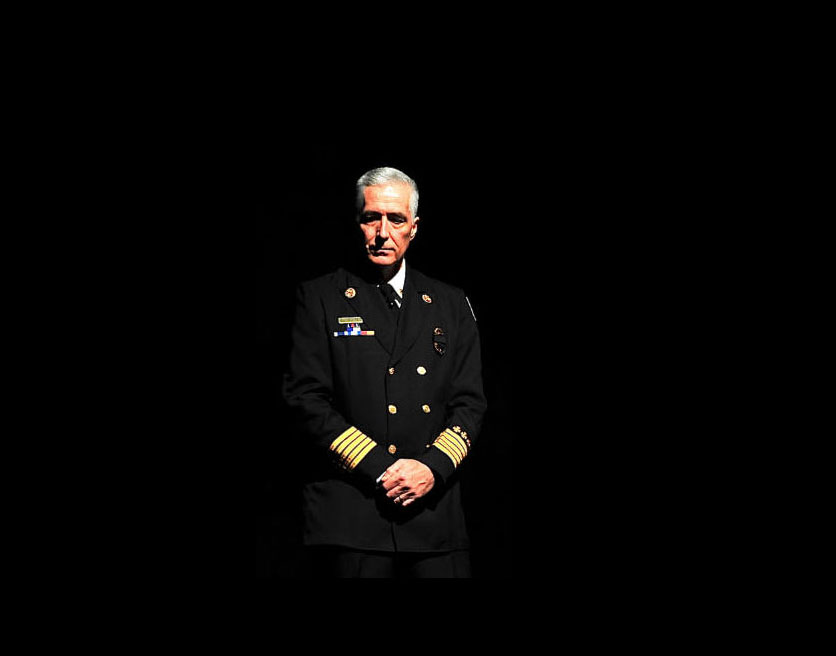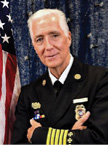
Editor’s Opinion ❘ By BOBBY HALTON

The ability to speak one’s mind, to express oneself freely and openly, has never been more precarious in America, a nation founded on the principle that freedom of speech is a natural God-given right. In our profession, the uniformed fire service, we have always had some limitations in our public discourse on duty or in uniform. This is understandable, as our conversation can be assumed to represent the opinions and thoughts of our institutions, governing agencies, or organizations. We have discussed this in different ways many times on this page, and my guess is we will continue to do so.
I have defended and always will defend people’s right to use the words and language that they find most comfortable or expressive for them. The case in point is in usage of the term “firemen,” which is still used by many writers/speakers, and although not as inclusive as the term “firefighters,” which captures both genders, we still hear and see “firemen” from time to time. I personally prefer “firefighter,” but I don’t believe all or every usage of it by others is meant to be exclusionary; often, it is historical. I try to avoid ascribing motives to anyone and especially to groups of people. Some may well be using it to be exclusionary and that is their right, but then the old adage “Better to stay silent and be thought a fool than to open your mouth and prove it” comes to mind.
I had a very thoughtful conversation on this page about “inclusive” language with a female firefighter who had concerns that she expressed politely and respectfully and to which I tried as best I could to express my position on censorship. We published her thoughts and gave my reply and she, although still sure of her position, was grateful and kind and very appreciative that I took the time to express my reasoning. But, as they say, “You can please some of the people some of the time, but you can’t please all of the people all of the time.”
A few years after we had that conversation, published on this page, a gentleman was flipping through the magazine and, after reading our exchange, he became very upset—maybe enraged is a better word. He sent a rant, a screed with no name attached, so we could not publish it. He felt no one should be able to use the word “firemen” ever, and I was a reprobate for even thinking of defending it. Like Don Quixote protecting Dulcinea, he railed that my references to Orwell and Huxley regarding the slippery slope of censorship were shameful. He found my references to them uncalled for, disrespectful, and abhorrent. She was simply asking for some understanding, some minor accommodation and nothing more. His anger blinded him to the point that we agree on inclusive language; we do not agree on censorship or revisionist history.
There are always two, maybe three, or four sides to a story. Back in the 1960s, the New York Police Department was holding its annual “Policeman’s Ball,” as it was called back then. Now I am sure it is the “Police Officers’ Ball.” During the event, as several hundred of New York’s finest were milling about exchanging pleasantries, a patrol officer came walking very deliberately through the crowded room. He stopped abruptly in front of a captain, some words were exchanged, and the young officer punched the captain in the mouth, knocking him to the ground; turned sharply; and walked out of the room.
The members of the top brass were horrified. The next morning, Detective First Class Bob Byrne was called to the commissioner’s office and told to investigate the matter. The offender must be found and dealt with forthwith. Several days went by, and Det. Byrne was called in to update the brass. The assembled top staffers asked Byrne how his investigation was going and when charges would be filed. “Well, sirs,” began Byrne, “I am afraid we have hit a dead end.” “How can that be?” they demanded. “There were hundreds of officers there, trained observers; good God, man, a dead end?” “Well, sirs,” Byrne continued, “I have conducted over 300 interviews of officers in attendance that night, and so far, they were all in the bathroom at the time.” Yep, nobody saw nothing. The bosses got it immediately; this was an honor punching. The captain was engaged with the patrol officer’s wife romantically; this was nonverbal communication of a private matter.
That 1960s incident came to mind recently when 30 members of a major fire department in a western state were hauled into the office and charged with “speech violations.” The violations were cussing and foul language usage in jokes and on the drill field. A conversation with a few of the charged revealed that several were terminated without any formal process as outlined in the bargaining agreement—that, in several instances, the violations were reported without any evidence or corroboration and the defendants had to prove their innocence. As of this writing, several of the terminated were or have appealed to be reinstated.
The alleged speech violations were banter in the firehouse, street talk. Sure, was some of it salty, foul? Guilty as charged. However, in many cases, the complainant was involved or participated and only reported it as retribution for some slight that occurred later. Now, I am not suggesting we condone foul or offensive speech on duty or ever, for that matter, or that we punch people out, or that some stuff isn’t out of line, but the best among us say something directly to us, just as the irate guy who hated my response did. I respect that. If it is wrong—talk, remarks, whatever—say something to the offender and own it.
No one is perfect; we will say stupid things, cuss, even be outright insulting without being aware of it. But how one corrects another matters, and how one responds to that correction matters. We should always afford the same understanding to others we would hope to get for ourselves. We always tend to judge others more harshly than ourselves, perhaps today more than ever, and that is truly a tragic thing.


